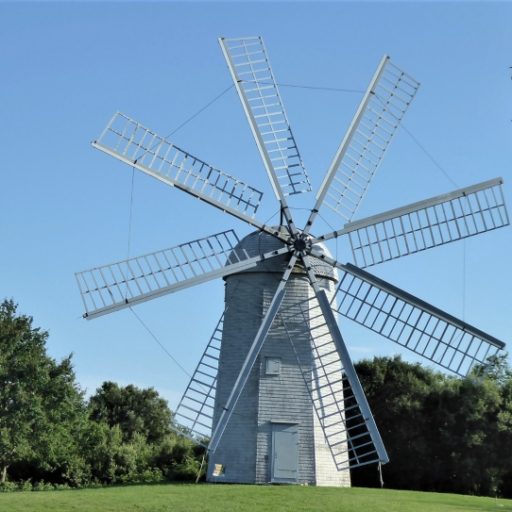Peace Corps Volunteers have added much to my life — and to the lives of many others too.
Some have lived and worked in remote villages. Others have improved services in mid-sized towns for outlying populations. Still others have been in more central locations, helping to mesh things together for whole areas, and to link with urban centers.
And many of these PCVs have been inspired to go on for graduate studies, and to have even larger innovative roles related to needs of rurban areas, cities, state universities, and national programs back in the U.S.
Jeannie and I first mingled with PCVs in 1963, soon after the Peace Corps was started, in the state (Departmento) of Puno, 12,500 feet and higher, in the southern Peruvian Altiplano, next to Lake Titicaca. Up where condors soar, many of the world’s llamas and alpaca are, potatoes and quinoa originated, the Inca culture evolved for both good and bad, the Spanish then took, Lima leaders ignored, and absentee latifundia owners had unproductive holdings and were treating their landless colonos meanly.
I was an Iowa-USAID agrarian reform economist. A few other specialists were there, to help with regional planning, agriculture, enterprise development, education, infrastructure, health, and other needs. Maryknoll missionaries were out in the villages, going beyond religion to strengthen literacy, community identity and progress, and more. And there were maybe 40 Peace Corps Volunteers, from many parts of the U.S., rural and urban.
Most of the PCVs were recent college graduates. Some were specialized, some “BA generalists”. A few were married. Some were still “finding themselves”. But, unlike peers who were taking anti-establishment, hippie routes, these wanted to blend adventure with useful purpose. The Peace Corps offered a fresh kind of outlet, and the Kennedy-era “Alliance for Progress” set a positive tone for creative links with people in Latin America.
Early PCVs were given some language and cultural training, then told to go out, find a village, try to do good things, and stay out of trouble for two years. Usually they rented a room in a house, and crowded into local buses or atop loaded trucks to get to town. They received a small stipend for current costs. PC headquarters put some into a savings accounts for later grad studies or whatever. And also gave them some books to read. Few had phones out where they were. Mail took a week or two to arrive from Lima. Seldom did the PCVs go home to the U.S. during their two year stays. (Nor did we.)
The Volunteers were seemingly laid back … showed up at many local festivals, and their own happy-hours. But in varying ways they accomplished a lot. Much of it was creative improvisation, and not in PC guide manuals. Like Dan who gained transport by tacking a Land Rover body onto a wrecked Jeep chassis. And Julia and Irwin, from the artist lofts of New York City — besides helping villagers put Inca designs onto quality ceramics for export to high-end outlets, they had success growing new foods in a community garden, because they didn’t know that certain crops weren’t supposed to survive. And Dave, who guided on-farm test-demonstrations, and devised a better irrigation-water pump. And anthropology-minded Ralph who devised equitable land-access arrangements that fit contrasting Quechua and Aymara traditions. And others who had key roles of reducing corruption by getting local co-ops to keep good accounts.
The Puno PCVs’ had lasting influences beyond official tasks. They added zest to the endeavors of well intended Peruvian leaders and agency counterparts. They became role models in the far-flung villages … like providing injured campesinos with first aid, getting them to the hospital if need be, and then going to bats for good treatment.
*******************
The 1970s found me back at the U of Tennessee, where I was an international prof, backstopping programs in India and other places. I had become a volunteer Peace Corps Career Counselor. This had me writing letters to returning PCVs who were thinking of grad work in ag econ and related fields. I tried to steer them to the best universities. But some decided to come to UT. (UT is a stronger university academically than many people are aware.) They added grassroots experience and fresh spirit to our graduate programs, and meshed well with the students from developing countries. We adapted some of our courses and research to fit — e.g., theses that examined lessons learned from their Peace Corps work. Soon that was attracting yet more returned PC Volunteers.
The RPCVs started to have influence on the whole campus community. An enlivened international students’ program. Folk music events. A long Walk for Development, for which the (youngish) Ambassador from Burkina Faso willingly accepted an RPCV’s urging to take part. When the large family of a grad student was evacuated from Vietnam and came to Knoxville, RPCVs were at the ready, improvising housing on very short notice. And as I’ve found to be true for some other dedicated groups, this was all done with a sense of good humor and a light touch, rather than being deadly serious.
********************
The RPCV’s I’ve known have gone to all sorts of useful, unique things. University teaching, research, and extension. Foreign students advising. International business. Food marketing systems development in East and South Asia. Peace Corps staff roles. USAID-related careers. UN programs. USDA foreign economic analyses. USDA programs to keep out invasive insects and diseases. Congress-related staff roles. …. and usually not in humdrum manner.
I’ve happily kept in touch with several as they move into retirement. Not humdrum either. Tom has sparked continuing in-country RPCV helps via their “Friends of Burkina Faso” programs, decades after he was there. Another Tom, following lead staff roles in DC, is still having influences from Maine via his online networks, along with healthy doses of humor much needed these days. A third Tom has been offering courses on South Asia, world issues, and think-framing topics in Rhode Island communities. Merle has reinforced major efforts in Timor-Leste and other fragile Asian countries, but is not above helping elderly neighbors with house fix-ups and other needs. Weyman, with a farmstead in the South, has helped to strengthen neighborhood spirit and co-ops, and to reinforce Blacks there. Bill wrote a book about his mom’s riding a bike alone through the Andes, and took professional-class photos that made meaningful human statements. Felix, following an ag econ career with USDA/NRCS in DC, is out in Montana, having innovative civic roles related to Special Olympics, museums, and more. Glenn has done much to strengthen the international dimension of his university, continuing even after nominal retirement. Katie has encouraged and helped Africans to market quality, fair-traded arts and craft items. And O.J. — one of the original PCV’s in Puno — has, after a senior UN population-planning career, gained retirement fame as a on-line Western Country disc jockey, complete with Stetson and drawl, from the basement of his home in New Jersey.
********************
What about now? Is the Peace Corps like it was? Should I encourage my grandkids and other young people to think about becoming a Peace Corps Volunteer? What PCV opportunities are there these days? Does it still have that unique spirit and sense of purpose?
Here’s the official Peace Corps recruitment website. https://www.peacecorps.gov
Official Government reports and reviews focus on Volunteer numbers and placements, tightening budgets, and such … the Peace Corps seems to have become “just another” agency in DC circuits.
But in contrast, I’m delighted to find that the Peace Corps spirit is still there in the hearts of many, as seen by these links to the University of Tennessee, Minnesota’s RPCVs, and the National Peace Corps Association
Especially inspiring is how RPCVs have nourished follow-up programs where they served, like these in Burkina Faso and in the Peruvian Andes. For some RPCVs, the Peace Corps vision blended with grassroots realism has become a 50-year commitment!
Dave Brown Middletown RI April 2023


